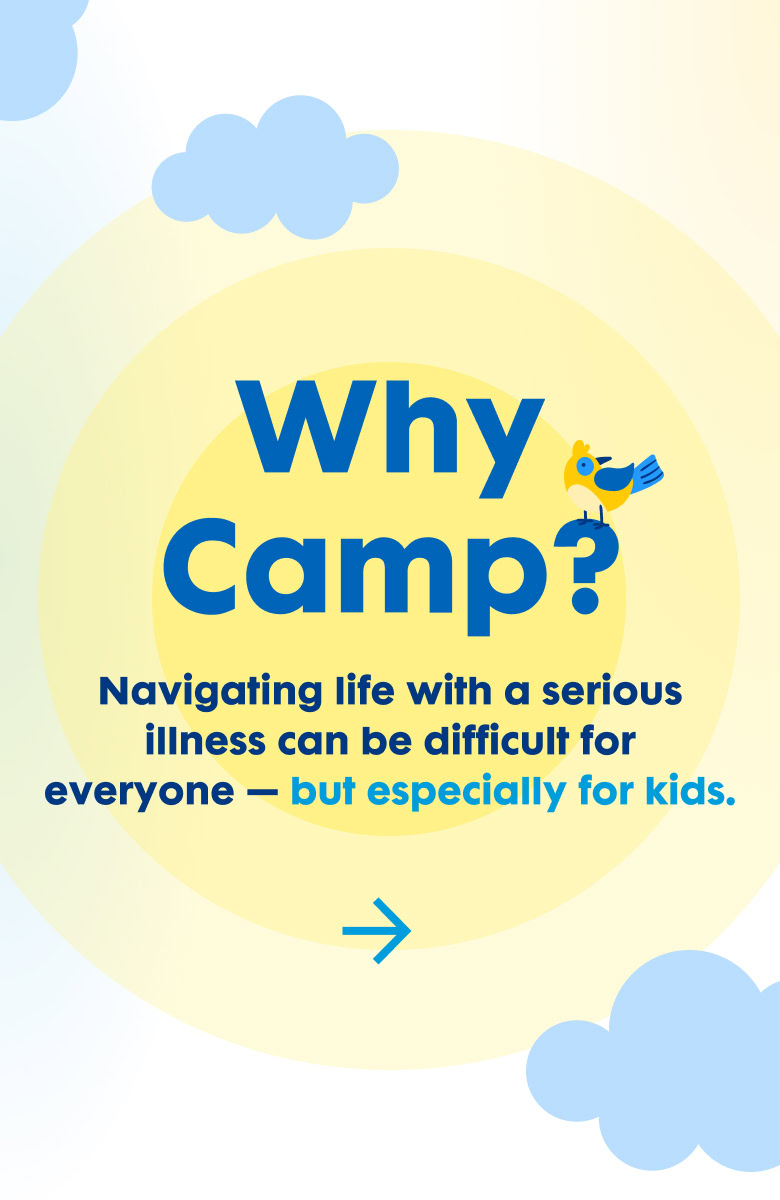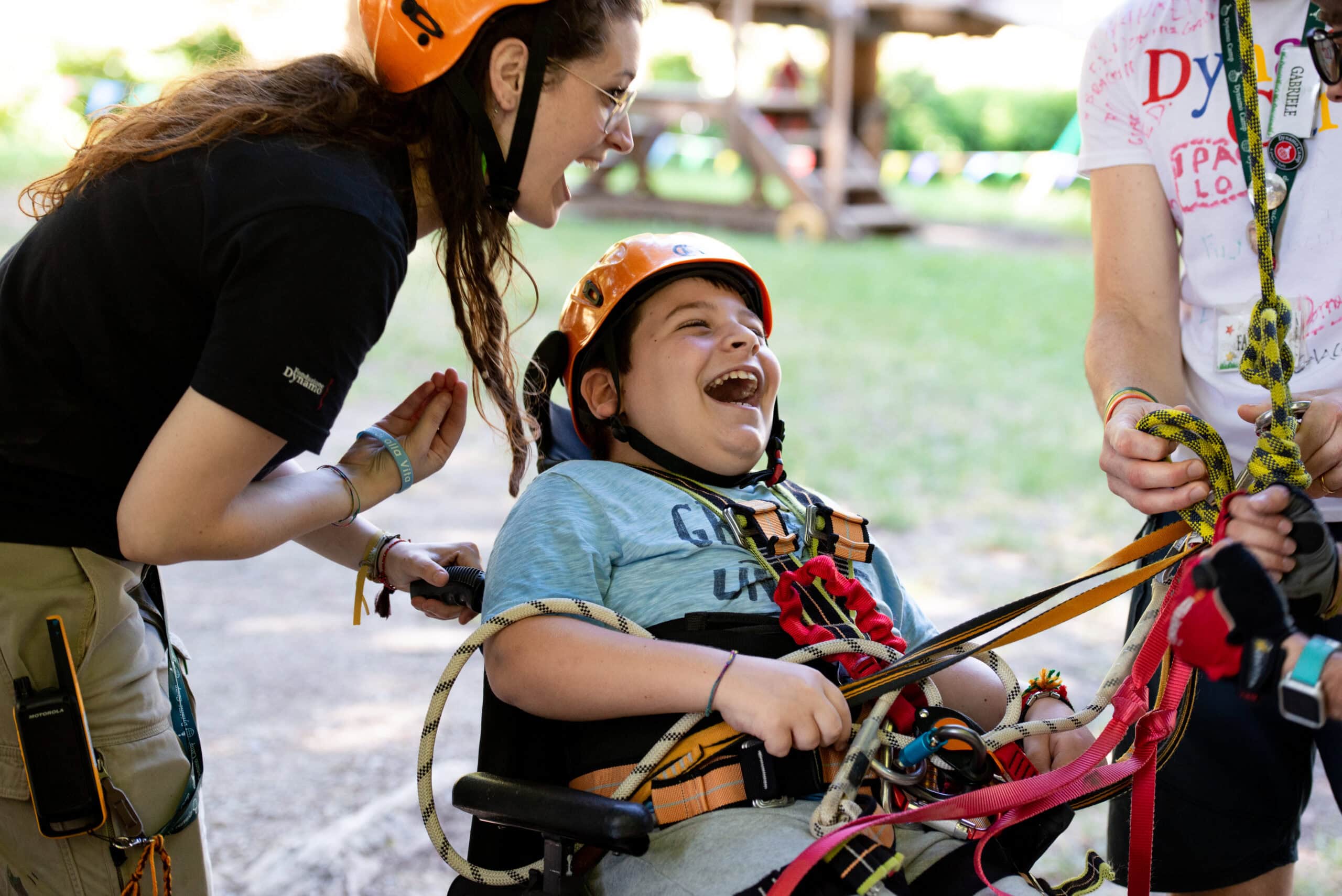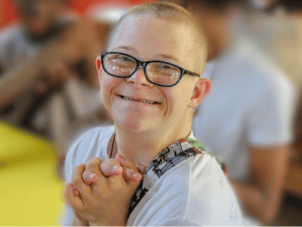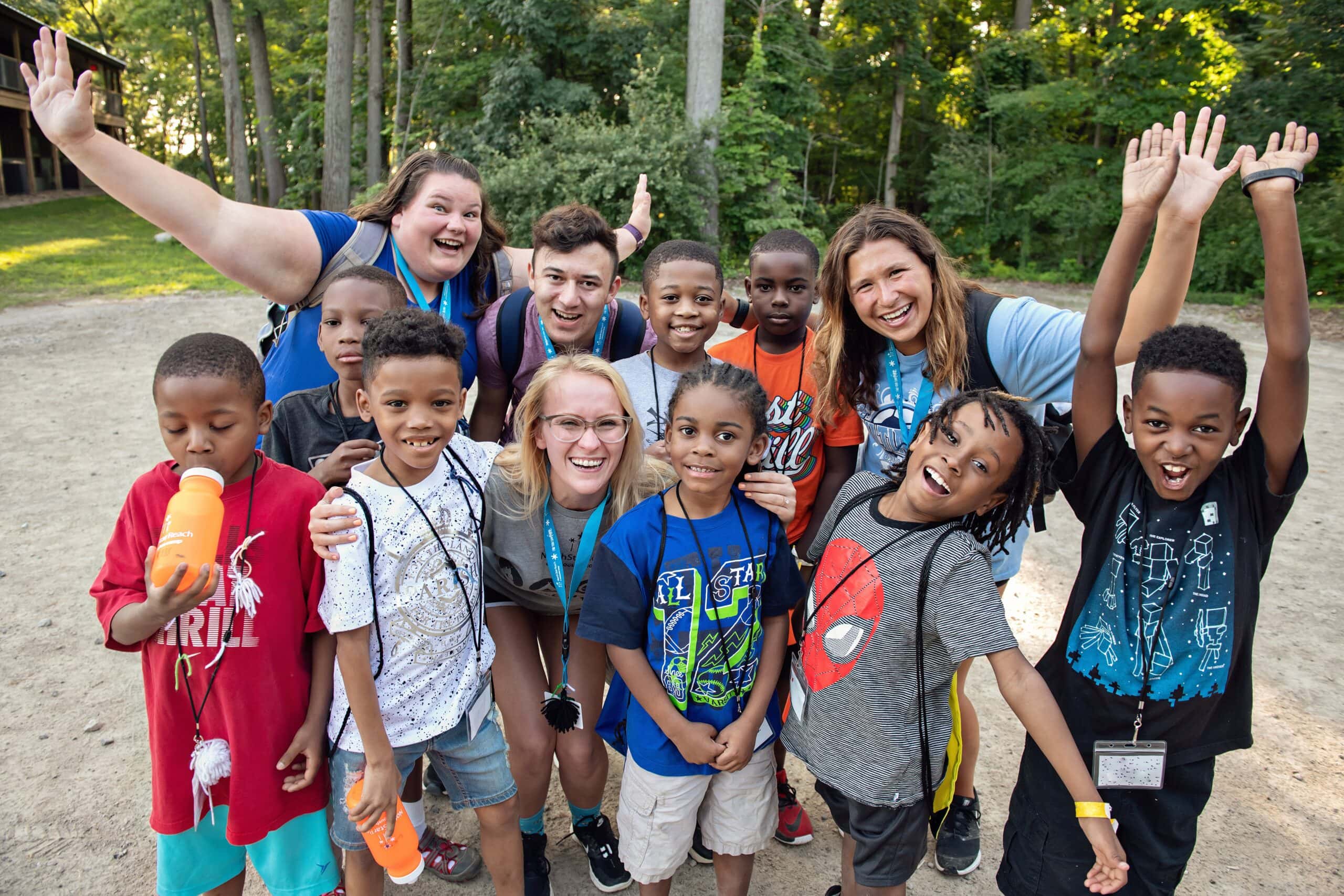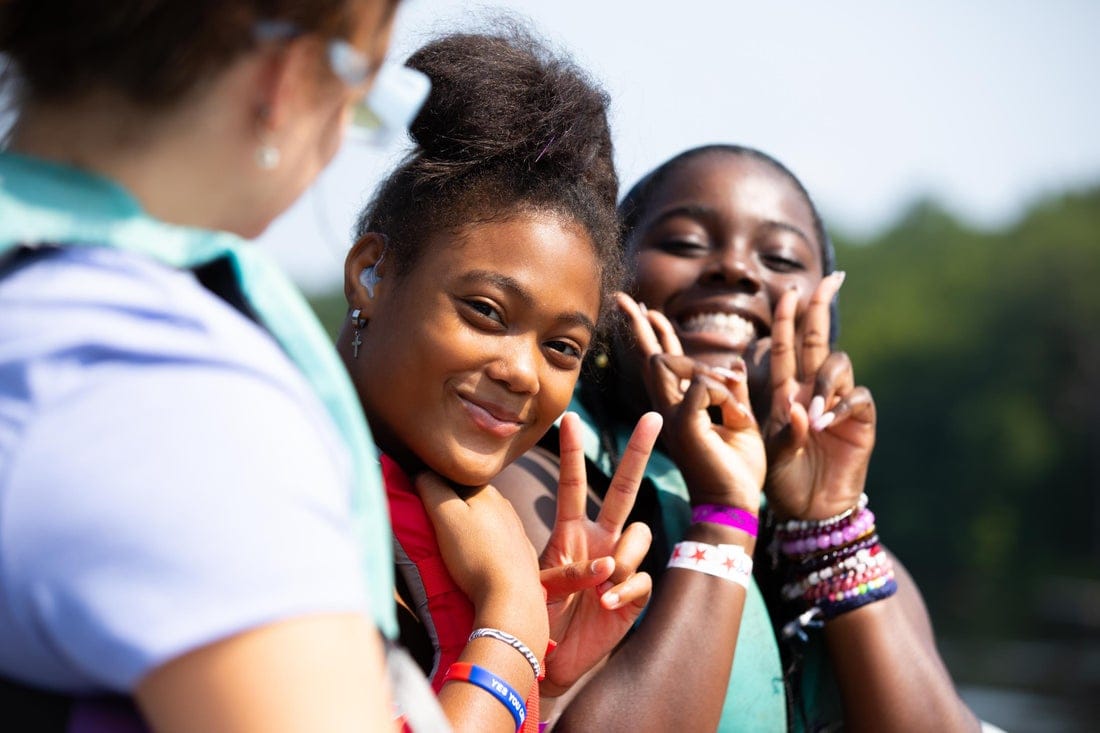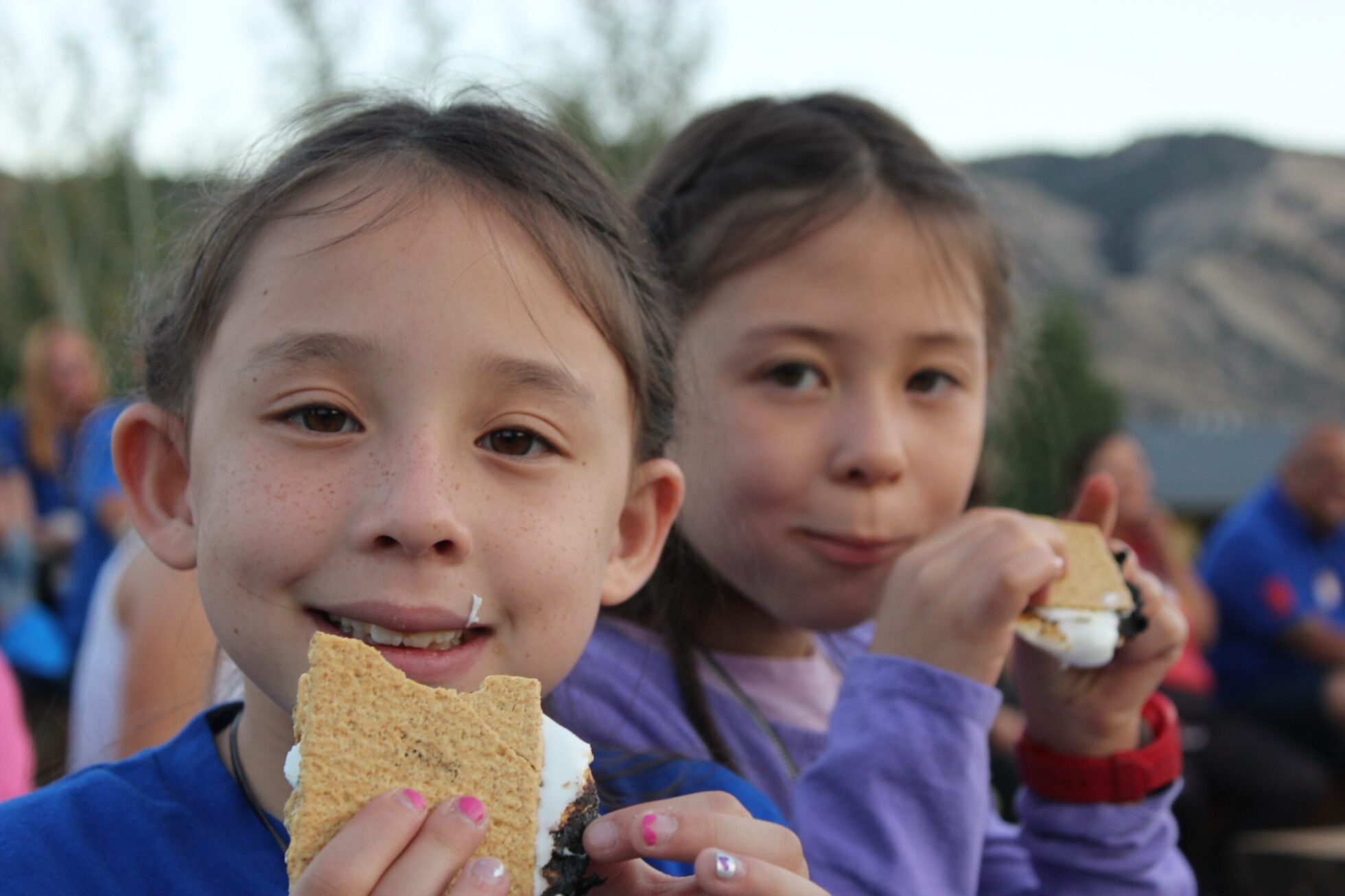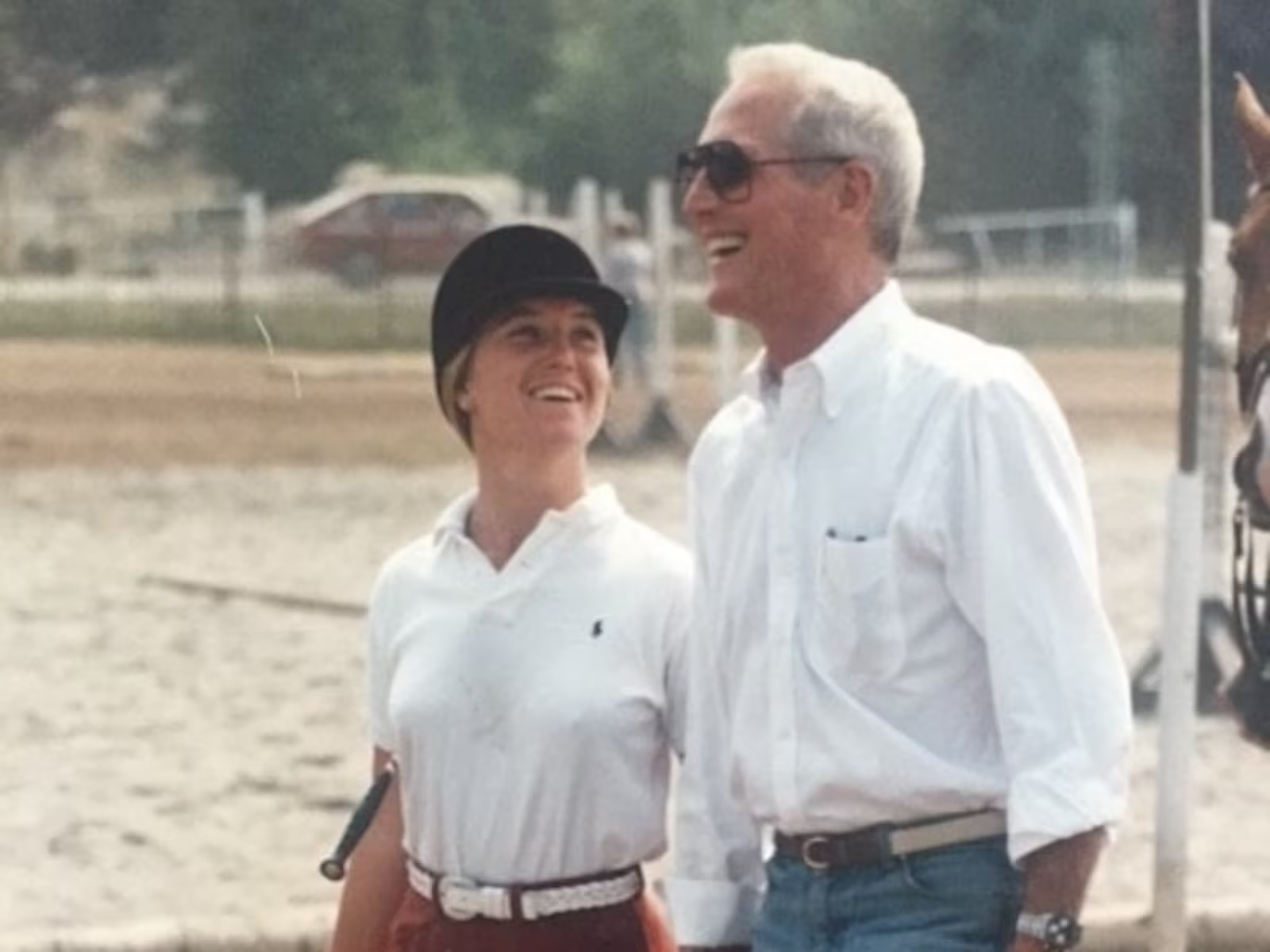Every meaningful camp experience had by a SeriousFun camper is made possible by not only supporting their medical and physiological needs but their psychosocial and emotional needs as well.
In 2023, we partnered with Abercrombie & Fitch Co. to launch the inaugural Camp Mental Wellness & Health Grants designed to advance critical mental health initiatives taking place at the camp level. These initiatives reflect the necessity of making every child’s mental wellness a priority and the outcomes are proof that addressing psychosocial needs has never been more important.
CAMHP Boggy Creek (Comprehensive Approaches to Mental Health Protocols)
Camp Boggy Creek (Florida) is committed to recognizing the overlap in children who have a serious illness and those who have experienced Adverse Childhood Experiences from stress-inducing situations like hurricanes. In order to identify how to best serve children who meet these criteria and their families, the camp hired two consultants who conducted a systemic needs and outcomes evaluation of camp programming. Taking place during a pilot Hurricane Family Retreat weekend and during regular summer programming, the consultants surveyed parents from 150 families to assess their needs and measured the behavioral changes of campers who participated.
As a direct result of evaluation findings, Camp Boggy Creek was able to better understand the intersection of serious illness and Adverse Childhood Experiences. This led them to convert a part-time mental health employee position into a full-time position. Additionally, the camp will increase mental health support at camp with four licensed mental health counselors that will join camp in the 2024 session.
Bátor Tábor: Mental Health Digital Content Hub
Faced with an increasing need amid regional challenges, including those posed by the COVID-19 pandemic, the Ukraine War, and a recent economic crisis, Bátor Tábor (Hungary) developed a unique way to address mental wellness of its campers and families. The Mental Health Digital Content Hub is an online portal that serves as a mental health magazine that leverages the expertise of mental health professionals to educate and inform families both within and beyond camp.
Through the Hub, the camp’s content management team creates and shares mental health-focused articles, interviews, and podcasts. In one year, the Hub has reached hundreds of campers and families and averages 2000 monthly visitors. Going forward, Bátor Tábor will designate a content hub team leader who will coordinate cross-functional efforts while identifying the best practices for expanding its audience reach and engaging new content creators.
Dynamo Camp Addresses Hikikomori Syndrome
Dynamo Camp (Italy) identified a growing need for addressing neuropsychiatric disorders including Hikikomiro Syndrome, a behavior disorder characterized by severe social withdrawal. Seeking to address the psychosocial needs of children affected by these types of disorders (particularly in the wake of a global pandemic that greatly affected in-person communication), Dynamo Camp engaged a neuropsychiatrist at Regina Margherita Hospital in Turin to develop an assessment of campers with severe depression as specialized camp programming encouraged them to grow their autonomy and confidence.
Over the course of a nine-day program, camp staff who were trained by mental health specialists and two neuropsychiatrists supported each camper at their own pace. Throughout this process, the camp conducted surveys and interviews to identify ways to better serve this population in the future. The results of this first session are promising with all campers successfully returning to school full-time following their camp experience.
Psychosocial Health Initiatives at Flying Horse Farms
In order to meet the complex mental health needs of their camper community, Flying Horse Farms (Ohio) staff piloted two mental health programs for campers and families to achieve greater resiliency, reduce stress, and increase coping skills. For the first, Mental Health Camp, the camp’s psychosocial team brought on seven mental health clinicians as co-facilitators to support campers living with anxiety, depression, and post-traumatic stress exacerbated by the pandemic. In addition, the camp partnered with NCH Center for Suicide Prevention and Research (CSPR) to pilot a CSPR Family Camp weekend. At both programs, evidence-based practices were used to promote mindfulness, self-regulation, coping skills, and interpersonal effectiveness.
The outcomes of the evidence-based practices that were offered to campers and families were measured on the last day of camp and via a post-camp survey two weeks later. And results indicate the efficacy of the initiative as all caregivers reported confidence in using the skills they learned while 90% of campers reported an increased understanding of their emotions and how to use the coping skills they fostered at camp. Going forward, Flying Horse Farms plans to further integrate therapeutic interventions within program plans, starting with two weeks of Mental Health camp that will run concurrently with traditional camp this summer.
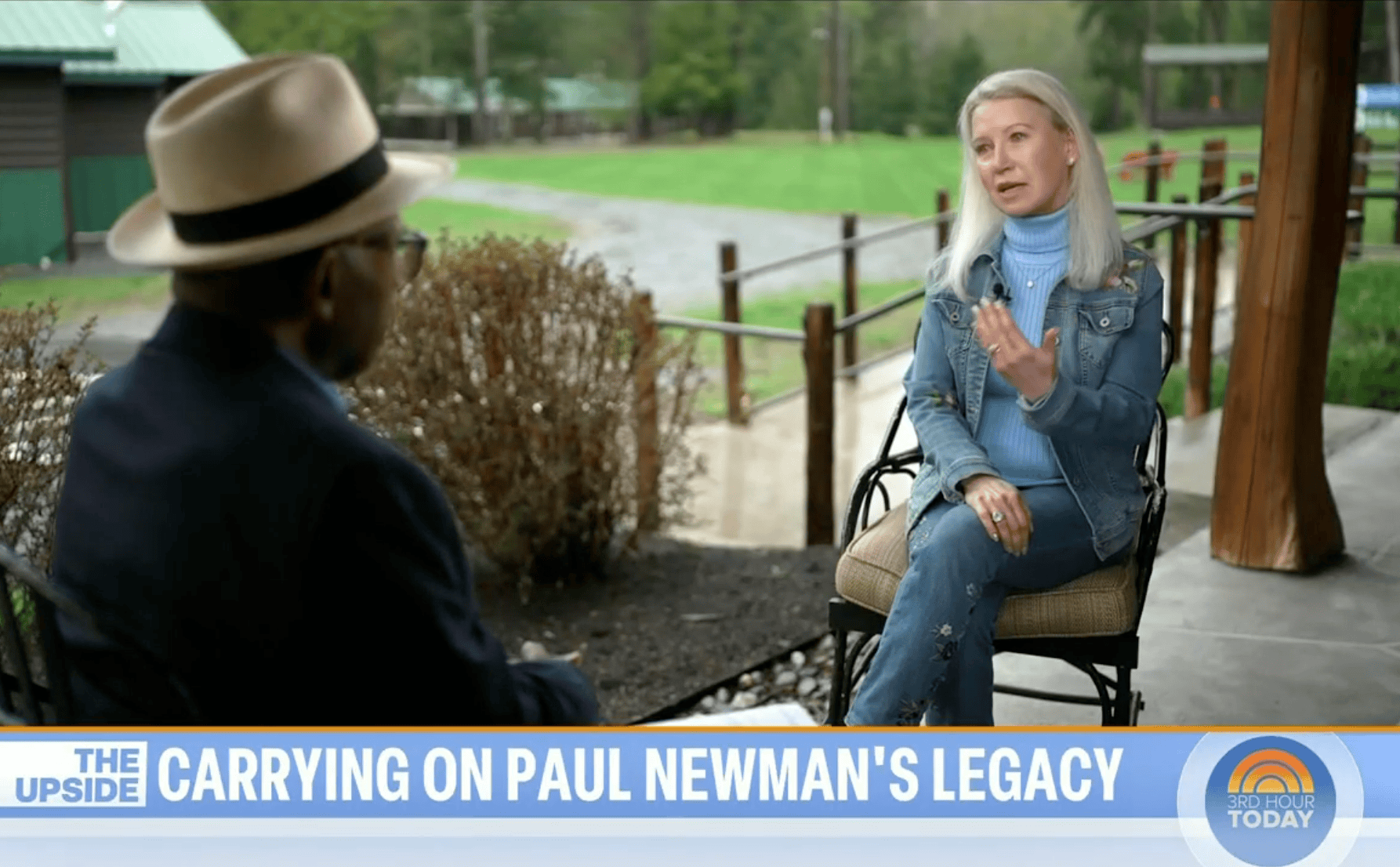
An Interview with Al Roker: Conversations That Still Inspire
Yesterday, September 1, 2025 Al Roker’s heartfelt interview with Clea Newman at Double H Ranch, a SeriousFun camp in NY was re-aired during The Upside portion of TODAY. In case you missed this special feature the first time it aired, Clea reflects on her father Paul Newman’s vision and the lasting impact of SeriousFun Children’s…
